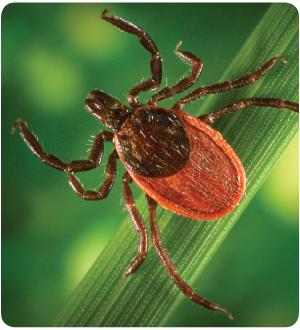I want to give you an update on Lyme in our house.

fda.gov
Last school quarter, one of my daughters came home with an abysmal report card. She went where no child of ours had ever gone before and her report card looked like a Sesame Street episode sponsored by the letter “F.”
What?
This is a smart kid, someone who doesn’t fool around, and who has respect for her teachers. She’s on the robotics team and has tons of great friends. What was going on?
Marc and I talked (and talked and talked and talked.)
- Is she being bullied at school? (Absolutely, no signs of that)
- Is she doing drugs (Nope a. she’s terrified of needles b. she has asthma and c. as an ex-microbiologist, she knows about the infections I’ve seen as a result of someone taking/ingesting dirty street drugs.)
“I don’t know what’s wrong with me,” she cried out in frustration.
I requested Special Education testing from the school. Maybe she had a learning disability that simply flew under the radar. But in the time between my requesting the meeting and actually going to it, a few things happened. I did research on the internet and figured out what was going on.
It’s not a learning disability. My daughter’s Lyme disease is back, as well as her Bartonella infection.
She had been complaining recently about her joints hurting, but it always followed a soccer game and well, whose joints wouldn’t hurt after soccer, right? And then she showed me a new Bart rash on her leg.
Suddenly things started to click. Her Lyme disease and co-infection was affecting her memory which was affecting her school work.
Instead of asking typical parental questions like “What were you thinking?” (which, if I want to be honest here, I did initially ask) I started asking her things like:
- When you go into a room, do you forget why you are there?
- Are you not passing in your homework, because you didn’t write it down and you forgot that you had a homework assignment?
- Are you doing poorly on your tests, not because you don’t know the information, but because you can’t recall it?
- When you get to the bottom of the page in a book, do you remember what was at the top of the page?
I knew to ask her these questions because I had noticed this behavior with my Lyme disease. When my infection flares, if I don’t write something down, it gets lost. It’s not like Alzheimer’s, I can recall the information if prompted, which is why I write it down, but there are days I absolutely need that prompt. So I’ve adapted and learned how to manage my symptoms.
It soon became apparent that my daughter had a moderate/significant memory and cognitive deficit problem as a result of Lyme disease and a co-infection. (Fancy talk for the bacteria had moved into her brain.)
Children often don’t have the language to be able to identify how sickness is affecting their bodies (“I don’t know what’s wrong with me.”) Oh sure, something acute like a sore throat can be verbalized, but when they have something that slowly creeps, like ivy up a brick wall eventually blocking a window, they don’t know they’ve lost the view until one day they realize something is missing, but they’re not sure what.
It’s just that things seem a lot darker.
I took her to our doc (LLMD) who immediately started her on antibiotics. With assistance, observation, and lots of organization, she pulled her grades up nicely in the last quarter. She now has the summer to de-stress a little, get some exercise, eat well, take her meds, and do some healing.
Who knows what the next school year will bring? She’s young, it’s possible that her brain involvement *could* be reversed with the use of continued antibiotics. (If it’s in her brain, she’s got a chronic infection which means she’ll be on meds for a long time.)
It’s also possible that it might not resolve.
In which case, we’ll have to set up accommodations for her in school. She’ll have to learn memory tricks and organizational skills in order to succeed in school (and life.) Trust me, I’m on it, I’m already researching techniques and I’ve spoken to a few specialists in this area. I’ll also be writing some magazine articles on this topic to share what I’ve learned.
I’ve since spoken to other parents in our town who have children with significant memory issues. Lyme is out there and it’s causing all kinds of problems and heartbreaks. Unrecognized, it’s going to create hell in our school system. We live in Southern New Hampshire, one of the most infested areas of the world for the infection. How could our kids not have problems?
Lyme disease is not a learning disability, but it is a disability. Lyme is disabling people (including our children) left and right.
We need to acknowledge this.
Watch your kids. Keep journals where you record strange symptoms/complaints, and question behavior that doesn’t seem right.
Be your child’s advocate. Reach out to a support group/system. Ask questions.
And for God’s sake, educate yourselves about Lyme disease and its consequences. It’s too much of a danger to remain ignorant about it anymore.
***
Wendy Thomas writes about the lessons learned while raising children and chickens in New Hampshire. Contact her at [email protected]
Also, join me on Facebook to find out more about the flock (children and chickens) and see some pretty funny chicken jokes, photos of tiny houses, and even a recipe or two.
Like what you read here? Consider subscribing to this blog so that you’ll never miss a post. And feel free to share with those who may need a little chicken love.

